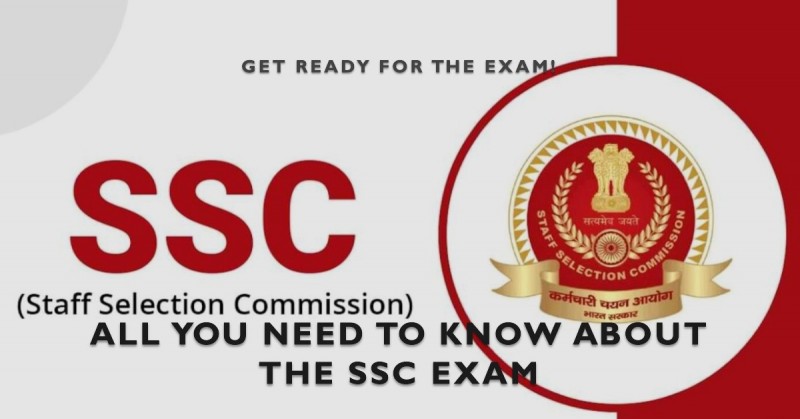
The Staff Selection Commission (SSC) exam is an important and widely recognized competitive examination conducted by the Government of India. It serves as a gateway for candidates aspiring to secure prestigious job positions in various government departments and ministries. This article aims to provide you with a comprehensive understanding of the SSC exam, including its eligibility criteria, exam pattern, preparation strategies, and more.
What is the SSC Exam?
The SSC exam, conducted by the Staff Selection Commission, is a highly sought-after exam in India. It serves as the primary recruitment tool for Group B and Group C non-technical posts in various government departments, ministries, and organizations. The exam covers a wide range of fields, including clerical, data entry, assistants, inspectors, and more.
Eligibility Criteria
To be eligible for the SSC exam, candidates must fulfill certain criteria:
Educational Qualification
Candidates should have completed their higher secondary education (10+2) or possess an equivalent qualification from a recognized board or university. The educational qualifications required may vary depending on the specific post and department.
Age Limit
The age limit for the SSC exam varies for different categories. Generally, the minimum age is 18 years, and the maximum age is 30 years. However, age relaxations are provided to candidates belonging to reserved categories as per government rules.
SSC Exam Pattern
Understanding the exam pattern is crucial for effective preparation. The SSC exam consists of multiple tiers and stages:
Tier I: Preliminary Examination
The first tier, also known as the Preliminary Examination, is a computer-based test (CBT) consisting of objective-type questions. It evaluates the candidate's proficiency in subjects like General Intelligence, Reasoning, General Awareness, and Quantitative Aptitude.
Tier II: Mains Examination
Candidates who qualify for the Preliminary Examination proceed to the Mains Examination. This tier assesses the candidate's knowledge in subjects like English Language and Comprehension, Quantitative Aptitude, Statistics, and General Studies.
Tier III: Descriptive Test
The Descriptive Test evaluates the writing skills of candidates through essay writing, letter/application writing, precis, and comprehension exercises. This test is conducted in pen-and-paper mode.
Preparation Strategies
To excel in the SSC exam, effective preparation strategies are crucial. Here are some key tips to help you prepare:
Understand the Exam Syllabus: Familiarize yourself with the syllabus and exam pattern to identify the important topics and allocate time accordingly.
Create a Study Plan: Develop a well-structured study plan that covers all subjects and allows ample time for revision.
Practice Previous Year Question Papers: Solve previous year question papers to get acquainted with the exam format and identify areas for improvement.
Enhance Time Management Skills: Work on improving your speed and accuracy by practicing time-bound mock tests and quizzes.
Stay Updated with Current Affairs: Regularly read newspapers, magazines, and online sources to stay updated with current affairs, which is an essential component of the SSC exam.
Conclusion
The SSC exam opens the door to numerous job opportunities in the government sector. By understanding the eligibility criteria, exam pattern, and following effective preparation strategies, you can increase your chances of success in this competitive examination. Stay dedicated, stay focused, and embrace a systematic approach to achieve your career aspirations through the SSC exam.
JoSAA Counselling 2023 Regn Begins Today at josaa.nic.in, Apply Now
Concerns Raised by Academicians Over NCERT Textbook Row
Karnataka CET 2023 Results: Toppers and Statistics